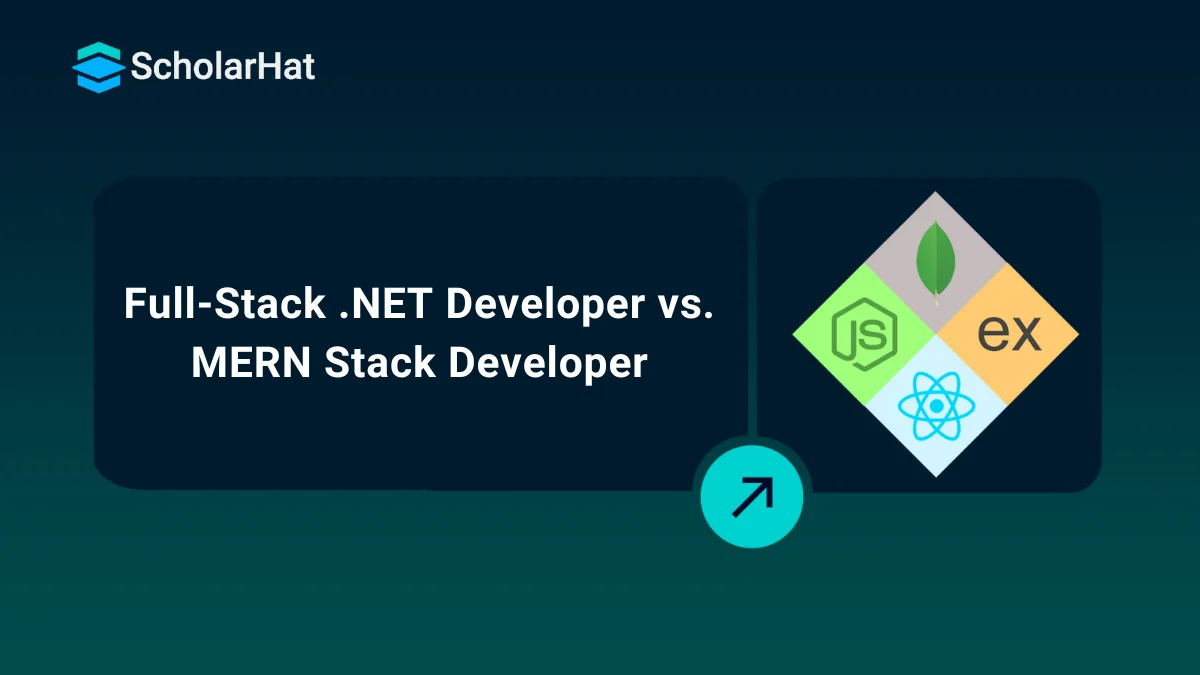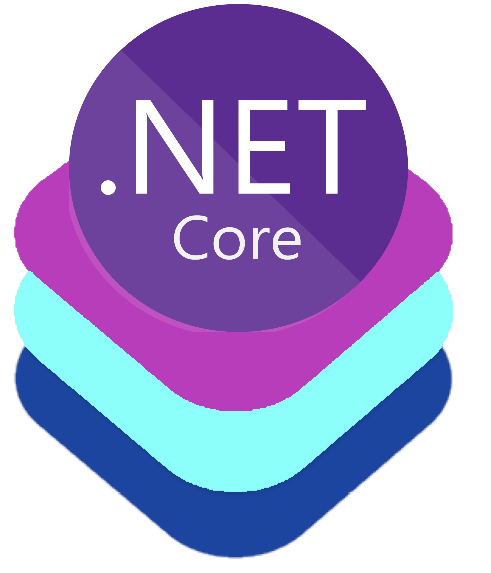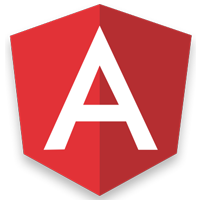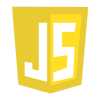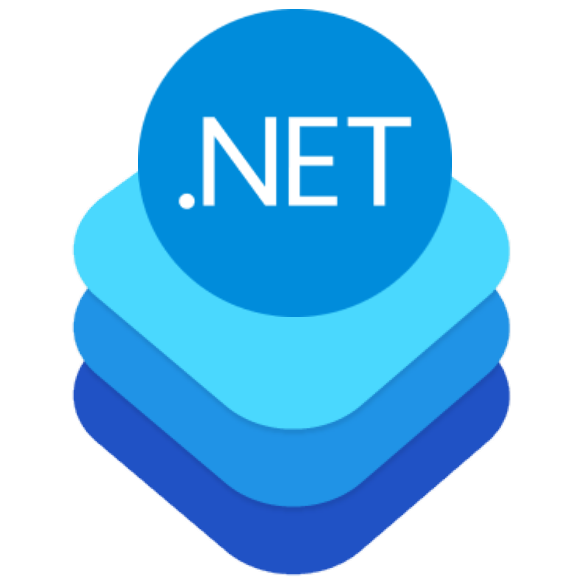Full-Stack .NET Developer vs. MERN Stack Developer
A Full-Stack Dot Net Developer and A MERN Stack Developer are two major roles in software development engineering. Both are fluent in Front-End, Back-End, and Database management. Both are important but have different skill sets in their related field. To become a Full Stack .NET Developer, the required skills are C #,.NET Core, and SQL Server, focusing on building powerful, scalable corporate apps that work with Microsoft. In contrast, to become a MERN Stack developer, the required skills are MongoDB, Express.js, React.js, and Node.js to create quick, dynamic, single-page apps and real-time applications using JavaScript.
In the Full-Stack Tutorial, we will read about a Full-Stack .NET developer and a MERN Stack developer, including their roles and responsibilities, skills and challenges, advantages and disadvantages, career paths, salary expectations, and more.
Read More - Full Stack .Net Developer Salary For Freshers
Who is a Full-Stack .NET Developer?
A Full-Stack .NET Developer is a proficient software engineer who has hands-on practice in both front-end and back-end development using the .NET framework. In easy words, a Full-Stack .Net Developer is a type of developer who must have practical knowledge of all techniques, languages, and system engineering concepts that are required in Software development. Let's go through some important points related to a Full-Stack .NET developer;
- Create and manage clean, well-documented code.
- Participate in work with other designers and other staff members
- Operates different types of operations on CI/CD pipelines.
- Should have knowledge of new technologies and trends in .NET development.
- For efficient data exchange between client and server, They generate RESTful APIs.
- Instrument security best practices to protect applications and user data.
- Conduct performance optimization to ensure fast and responsive applications.
- Provides technical support and mentoring to junior developers.
Roles and Responsibilities of a Full-Stack .NET Developer
Front-End Development
- Design and implement user interfaces.
- Implement interactive features using frameworks like Angular or React.
Back-End Development
- Develop server-side code using C# and ASP.NET Core.
- Create and maintain databases using SQL Server and ORM tools like Entity Framework.
Full-Stack Responsbilities
- Guarantee fast operations between front-end and back-end components.
- Enhance applications for speed and scalability.
DevOps and Deployment
- Set up and maintain continuous integration and continuous deployment pipelines.
- Deploy applications on cloud platforms like Azure.
Association and Communication
- Performing tasks with other developers, designers, and stakeholders.
- Maintain comprehensive documentation of code and development processes.
Continuous Learning
- Should have knowledge of new trends and technologies in the .NET framework.
- Evolve yourself in continuous learning from different courses and conferences.
Required Skills and Technologies to Become a Full-Stack .NET Developer
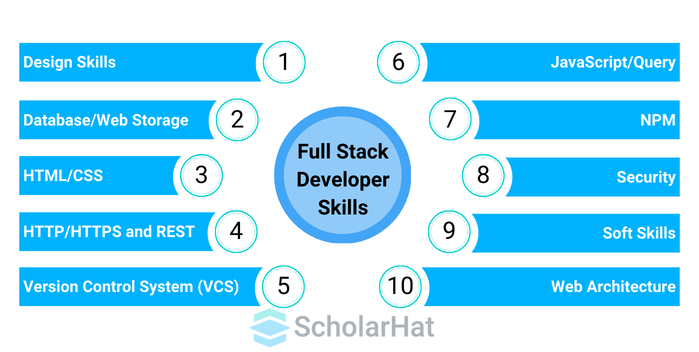
C# Programming Language
- Proficiency in C# for server-side development.
ASP.NET Core
- Experience with ASP.NET Core for web applications and APIs.
HTML/CSS
JavaScript/TypeScript
- Knowledge of JavaScript and TypeScript, with frameworks like Angular or React.
SQL Server
- Expertise in SQL Server for database management and query optimization.
Entity Framework
- Experience with Entity Framework for data access and ORM.
Version Control (Git)
- Proficiency in Git for source code management.
CI/CD Tools
- Familiarity with continuous integration and deployment tools.
Cloud Platforms (Azure)
- Knowledge of cloud deployment on platforms like Azure.
Testing
- Skills in writing and executing unit and integration tests.
Advantages of Becoming a Full-Stack .NET Developer
- Work on both front-end and back-end development, enhancing career flexibility.
- Acquire a broad range of technologies and tools, making you a valuable team member.
- High demand for full-stack developers leads to more job opportunities.
- Ability to address issues across the entire stack, resulting in more effective development.
- Opportunities for advancement into roles like tech lead, architect, or engineering manager.
Challenges for a Full-Stack .NET Developer
Managing Complexity
- Balancing and managing both front-end and back-end development tasks can be challenging and requires a deep understanding of multiple technologies.
Adapting New Technology
- Stay updated with evolving tools, frameworks, and best practices in both front-end and back-end development.
Requirement Changes
- Handling project scope changes effectively while managing both the front-end and back-end aspects of development.
Allocating Resources
- Efficiently allocating time and resources between different layers of development to ensure balanced progress.
Debugging & Troubleshooting
- Identifying and resolving issues across the entire stack can be complex and time-consuming.
Who are MERN Stack Developers?
MERN Stack Developers are software engineers who specialize in using the MERN stack to build web applications. MERN stack developers are skilled in both front-end and back-end development, enabling them to handle all aspects of web application development. They design and implement user interfaces with React, build server-side functionality with Node.js and Express, and manage data using MongoDB. Let's understand more about a MERN Stack developer;- Being an expert in JavaScript for both front-end and back-end development.
- Strong ability to use React.js to build dynamic and interactive user interfaces.
- Better understanding of Node.js and Express.js to handle server-side logic and API creation.
- Beat practices in using MongoDB for data storage and management.
- Having the ability to integrate front-end and back-end components to create web applications.
- Strong skills to test and debug both front-end and back-end code to ensure application reliability.
- Master in deploying applications and managing hosting environments.

| Read More: What is the Full Form of MERN Stack? |
Roles and Responsibilities of a MERN Stack Developer
Front-End Development
- Create and maintain user interfaces using React-js.
- Guarantee a responsive and attractive user experience.
Back-End Development
- Develop server-side applications and APIs using Node.js.
- Using Express.js to handle business logic and data processing.
Database Management
- Design, manage, and interact with MongoDB to handle data storage, retrieval, and manipulation.
Full Stack Integration
- Establish easy communication between front-end and back-end components.
- Determine data flow between MongoDB and the application, ensuring that data is correctly retrieved, displayed, and updated
Testing and Debugging
- Write and execute tests to identify and fix bugs.
- Ensure the application is reliable and performs well.
Deployment
- Deploy applications to production environments.
- Manage their hosting and scalability.
Collaboration
- Working with other designers and stakeholders to align project goals and ensure cohesive and efficient development.
- Cooperate in code reviews to maintain code quality, provide constructive feedback, and incorporate suggestions.
Required Skills and Technologies to Become a Mern Stack Developer
These are some of the most important skills of the MERN Stack Developerdepicted below;
MongoDB
- Understand NoSQL databases, design schemas, and perform CRUD operations.
- Manage databases and familiarize yourself with MongoDB Atlas for cloud solutions.
| Read More: MongoDB Interview Questions and Answers |
Express.js
- Determine the basics of building server-side applications with Express and get comfortable with error handling and debugging.
- Figure out middleware, routing, and how to handle HTTP requests and responses.
React
| Read More: React Developer Roadmap 2024 |
- Having a wholesome knowledge of the fundamentals of React, including components, state, and props.
- Clear your concepts about hooks (useState, useEffect, etc.) and get familiar with Redux for more complex state management.
- Knowing how to build single-page applications (SPAs) with React Router.
| Important Concepts of React |
| Props in React |
| state in React |
| React Lifecycle methods |
| Conditional Rendering |
Node.js
- Better knowledge of Node.js and how it differs from traditional server-side languages.
- Clear your concept related to asynchronous programming, callbacks, promises, and async/await.
- Being an expert with npm (Node Package Manager) for managing packages and dependencies.
| Read More: Node.js Interview Questions and Answers |
| Getting Started with ExpressJS |
JavaScript
- Deep understanding of modern JavaScript (ES6+ features).
- Knowledge of asynchronous programming and event-driven architecture.
HTML/CSS
- Strong skills in HTML and CSS for designing web pages.
RESTful APIs
- Learn how to design and consume RESTful APIs.
- Understand CRUD operations, authentication, and authorization.
Version Control
- Strong ability to use Git for version control.
- Knowledge of branching, merging, pulling requests, and collaborating with others.
Testing
- Having experties in testing frameworks like Jest for JavaScript and Mocha/Chai for Node.js.
- Operating unit testing, integration testing, and end-to-end testing.
Deployment
- Best practices on cloud platforms like AWS, Azure, or Heroku.
- Better understanding of the basics of CI/CD pipelines for automated testing and deployment.
Problem Solving and Debugging
- Having a strong ability of problem-solving to troubleshoot and debug issues effectively.
- Strong understanding of browser developer tools for debugging front-end issues.
Advantages of Becoming a MERN Stack Developer
- High demand for full-stack JavaScript developers.
- Having the finest skillset covering both front-end and back-end development.
- Proficiency in JavaScript simplifies the development process.
- Capable of building highly scalable and efficient applications.
- Many job opportunities in various industries.
- Become a perfectionist in technology by having continuous learning opportunities with the latest technologies.
Challenges for a MERN Stack Developer
Learning Curve
- Learning multiple technologies (MongoDB, Express.js, React, Node.js) can be challenging and time-consuming.
State Management
- Managing the state in large applications, especially with complex data flows, can be challenging.
Security
- challenging for implementing robust security measures to protect data and prevent burdens like XSS and SQL injection.
Testing
- Providing broad testing (unit, integration, and end-to-end) across the entire stack can be demanding.
Deployment & DevOps
- Managing deployment pipelines and understanding DevOps practices for smooth deployment and maintenance.
Full-Stack Responsbilities
- For MERN developers, the major challenge is to be an expert in both frontend and backend development tasks, which require different skill sets and approaches.
Difference Between a Full Stack .NET Developer v/s a MERN Stack Developer
Both of the Stacks are crucial in the development field but are in contrast to each other. Here are the key points;
| Factors | Full Stack .NET Developer | MERN Stack Developer |
| Knowledge | Should have a broad knowledge of multiple languages and frameworks for both front-end and back-end development, | Should have a broad knowledge of JavaScript-centric stack and master React, Node.js, Express, and MongoDB. |
| Characteristics | Work with Microsoft technologies like C#, ASP.NET, and SQL Server. | Work with JavaScript-based stack (MongoDB, Express.js, React, Node.js) for building web applications. |
| Job-Opportunities | There are several job opportunities in enterprise environments that focus on large-scale, robust applications. | There are several job opportunities in startups or tech companies specializing in modern web applications and fast development. |
| Package | Can earn about ₹4,00,000 to ₹25,00,000+ per year. | Can earn about ₹3,50,000 to ₹22,00,000+ per year. |
| Working Environment | Work in regular corporate environments or large enterprises, dealing with a variety of technologies and complex systems | Work in tech startups or modern tech companies, focusing on a JavaScript-centric stack and agile development processes. |
| Team-Cooperation | Usually collaborate within larger, structured teams in enterprise environments, often working with separate teams for front-end and back-end tasks. In contrast. | Typically work in smaller, more agile teams in startups or tech companies, often handling both front-end and back-end development, which fosters a more integrated and collaborative work style. |
Choosing the Right Path
The choice between becoming a Full-Stack .NET Developer and a MERN Stack Developer involves evaluating your career interests and goals. Let's understand how they help in our career growth;
A Full Stack .NET Developer
Choose this path if you are interested in working with Microsoft technologies, prefer structured environments with enterprise-level applications, and aim for roles in large organizations that use .NET for robust and scalable solutions.
A MERN Stack Developer
If you are serious about making your career in MERN Stack Development, you should be passionate about modern JavaScript technologies, fond of working in changing environments, and focus on building modern web applications using MongoDB, Node.js, Express.js, and React.
Conclusion
In the above article, We have discovered all the momentous concepts related to the topic of the Difference between a Full Stack .NET developer and a MERN Stack Developer. Both technologies have played an important role in software engineering. To master these technologies, you should first learn frontend, backend, and database design software engineering. By adapting these technologies, you can have better career growth in the software development industry. So ScholorHat comes up with various training and certification courses, such as the Full-Stack .NET Developer Certification Training Course and the MERN Full-Stack Web Developer Certification Training.FAQs
- Full-Stack .NET Developer: Primarily uses Microsoft's .NET framework for both frontend and backend development, often with C# for backend and ASP.NET for web applications.
- MERN Stack Developer: Uses a combination of MongoDB, Express.js, React, and Node.js, where JavaScript is the primary language for both frontend and backend development.
- Project Scope
- Technology Stack
- Industry Focus
- Development Speed
Take our Fullstack skill challenge to evaluate yourself!

In less than 5 minutes, with our skill challenge, you can identify your knowledge gaps and strengths in a given skill.

